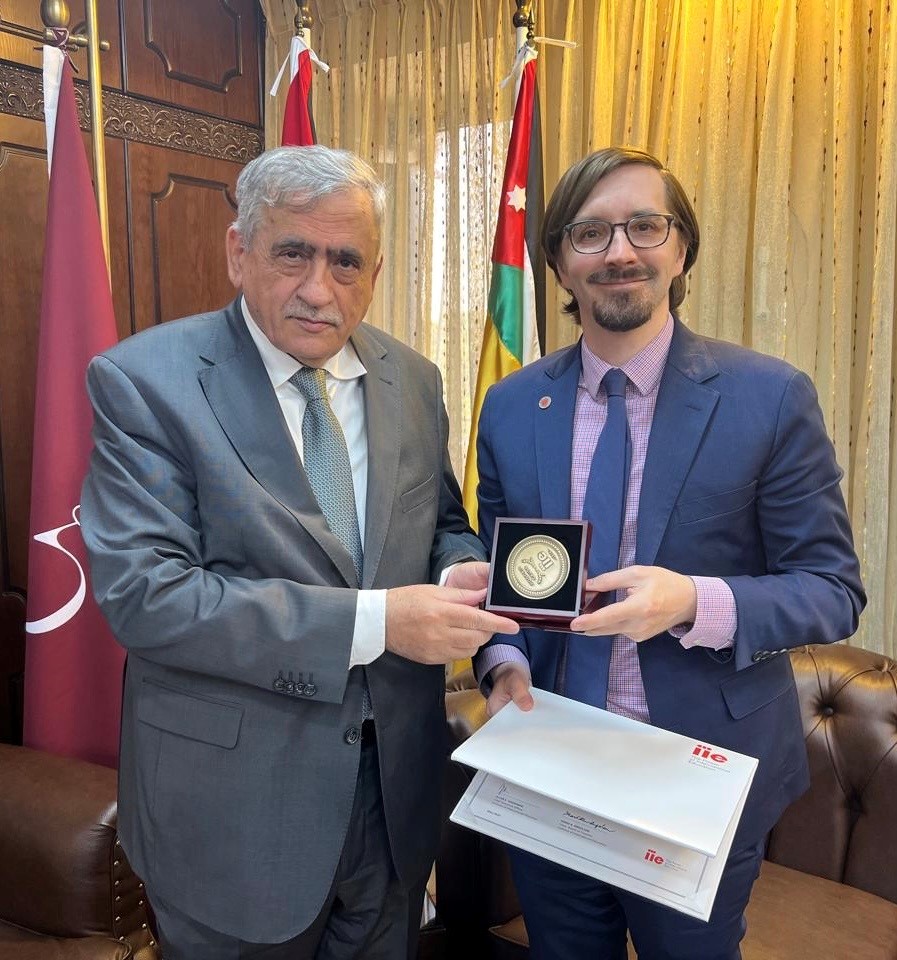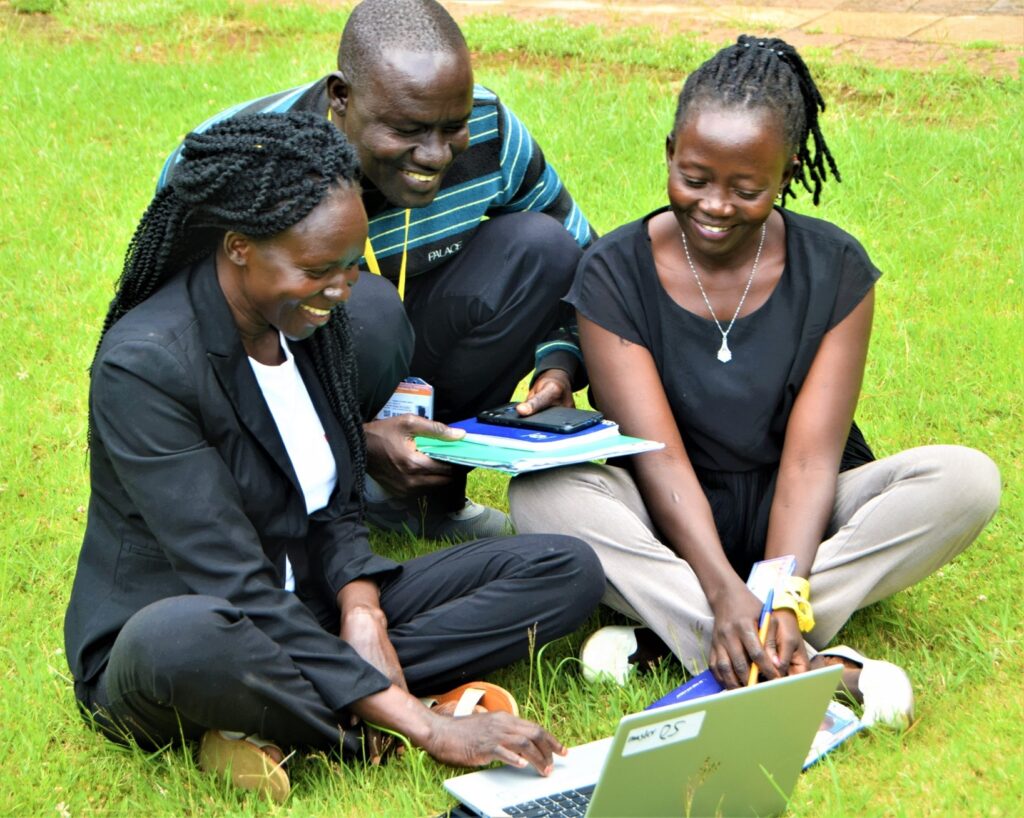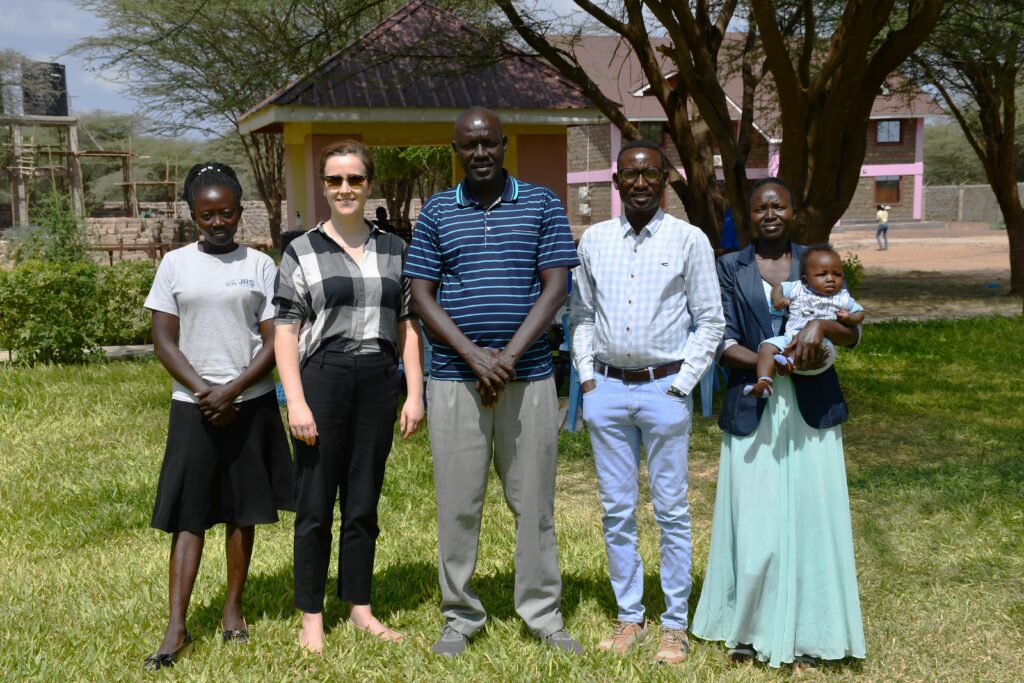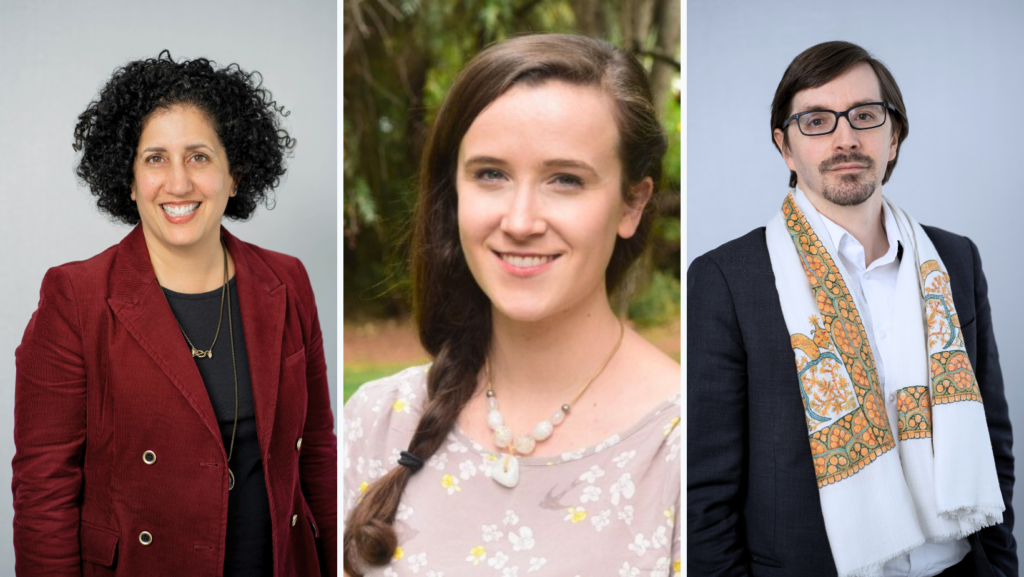Q&A with Leaders of IIE’s Crisis Response Initiatives
On World Refugee Day, we pay tribute to the strength, resilience, and potential of those who have fled their homes in search of stability and safety from conflict, persecution, and climate impacts. In response to the global refugee crisis, we have issued more than 2,300 scholarships, fellowships, and grants to forcibly displaced students, scholars, and artists through our groundbreaking crisis response initiatives, including the Odyssey Scholarship and the Scholar Rescue Fund.
We join the international community in recognizing the limitless potential among refugees and displaced people and calling for more inclusive policies that provide viable pathways to continue their education and contribute to a brighter future.
In recognition of World Refugee Day 2024, we are featuring insights from leaders of IIE’s Crisis Response initiatives: Mary Karam McKey, Head of Student Emergency Initiatives, Jessica Clarkson, Odyssey Scholarship Program Specialist, and James R. King, Senior Director of the Scholar Rescue Fund.
They discuss their efforts to meet and better serve displaced individuals, including engaging across the humanitarian assistance sector and leveraging IIE’s global offices.
What does the term “higher education in emergencies” mean?
Mary Karam McKey: This term centers the right to education, and specifically higher education, as a priority during times of crisis, which could be as a result of conflict, war, and climate impacts. Supporting access to higher education is important in a humanitarian immediate response situation as well as on-going and protracted crises like forced displacement. The work that we’ve done with partners on the Qatar-American Scholarship for Afghans Project (QSAP) is an example of a higher education initiative developed as an immediate response to the Taliban’s assumption of Afghanistan’s government in 2021. Our work in more ongoing development contexts includes the IIE Odyssey Scholarship, where we are awarding full B.A. and M.A. scholarships to students who have been forcibly displaced living in a country of asylum or outside their home country – sometimes for generations.
How is IIE engaging with the international community?
Mary Karam McKey: In advance of the Global Refugee Forum in Geneva in December 2023, the UNHCR invited IIE to join organizations focused on advancing access to higher education for individuals and communities affected by displacement and crises. Hence, the Interagency Steering Group on Higher Education in Humanitarian and Development Contexts came about. The group is collaborating on a framework that lays out the need for such a group and guiding principles with the goal of global coordination of higher education response in the immediate onset of emergency through longer-term displacement. To support the UNHCR goal to achieve 15% higher education enrollment among refugee youth by 2030, IIE also pledged to award 120 additional IIE Odyssey Scholarships over the next four years.
Later this month, IIE will host a two-day Community of Practice meeting as a member of the Global Task Force on Third Country Education Pathways, a coalition that supports the expansion of higher education as a complementary pathway for refugee students.
IIE has been leading concerted efforts to place threatened and displaced students, scholars, and artists at institutions within or close to their home regions. Why that approach?
Mary Karam McKey: Every context is different and the ability to meet students where they are with what they need is something that we strive to do in all of our programming. Given the scale of global displacement and the protracted nature of forced displacement, supporting students where they can be physically becomes critical. A passport and a visa are truly barriers to freedom of movement. Therefore, we designed IIE Odyssey to support students in their first country of asylum or within a region where they can study in person. We also have offices with extensive experience and networks in regions where there is large-scale displacement, and we’re, of course, leveraging that with the design of IIE Odyssey.
James King: The IIE Scholar Rescue Fund’s (IIE-SRF) ability to place threatened and displaced scholars within their home regions allows us to be nimble and quickly respond to new and emerging crises. We are often able to place scholars in the countries to which they’ve already fled, negating the need for a lengthy visa process, minimizing the period they are away from their scholarly work, and preventing the need for another relocation. This is especially critical in situations where family members have already begun adjusting to a new community.

Such appointments address numerous considerations, including immigration restrictions, scholars’ linguistic and cultural backgrounds, academic fit, and cost of living. They also preserve regional knowledge by facilitating IIE‐SRF fellows to continue contributing to their home countries and regions.
When possible, IIE-SRF will keep fellows in their home regions, which increases their ability to contribute to their home academies while in exile and to return home once tensions have subsided; allows them to continue their academic work in their native languages; and reduces the financial burden on scholars due to the lower cost of living.
It is important to support supporting institutions within countries and regions that are hosting large numbers of displaced individuals. We see SRF playing a critical role in providing resources, expertise, and other assistance that allows these institutions to support their colleagues. Our work in Poland and Jordan are perhaps the best examples.
Twenty-nine percent of IIE-SRF fellows on fellowship in 2024 are in host countries within their home region. Poland and Jordan and the third and fourth most common host countries, respectively, for IIE-SRF fellows in 2024, driven by regional placements for fellows from Ukraine and the Middle East. I was fortunate this summer to visit several of our host institution partners in Jordan and IIE-SRF fellows who have found an academic home there. I presented IIE Century medals to Philadelphia University and University of Jordan for their long-time collaboration with IIE-SRF, hosting the first and third most scholars respectively of any institutions in our program’s history.
Are there any recent activities that have left you inspired?
Jessica Clarkson: Last December, I had the opportunity to travel to Kakuma Refugee Camp in the northwestern part of Kenya. The camp is one of the oldest and largest refugee camps in the world, located in a remote and arid part of the country, at least a 12-hour bus ride to the capital Nairobi. Our partners there, Jesuit Refugee Service, drove me around the camp to visit several secondary schools that they run, to the learning centers where our grantees completed their hybrid bachelor’s degrees, and finally to share a meal with the first cohort of Odyssey Scholars. They are the first of their colleagues with the opportunity to pursue a fully funded, in-person master’s degree in Nairobi.


One of them was Felista, a 25-year-old woman originally from Sudan, though she has lived most of her life in Kakuma. After completing her B.A. in Business Administration in 2021, she worked as the only female academic advisor at her alma mater while continuing to support her family’s small retail business, which she hopes to help grow with her new skills. Over lunch, she shared how excited she was to begin her M.A. in Project Planning and Management at the Catholic University of Eastern Africa, as well as her worries about living outside of the camp for the first time in her adult life. Many shared this fear, but their sense of camaraderie in the face of this new opportunity and challenge was moving. I was glad to be able to announce a second year of the partnership while I was there, and we have since awarded six new scholarships for students to begin their master’s in Fall 2024.
Learn more about IIE’s support for students, scholars, and artists who’ve been forcibly displaced at www.iie.org/WorldRefugeeDay.
